Fitness, at any age, plays an important role in:
- Promoting your optimal mental and emotional health
- Helping you reach and maintain your ideal body weight
- Helping to slow your rate of aging
- Helping you enjoy more quality sleep at night
- Increasing your overall energy levels
- Help increase or maintain your flexibility
Research in the area of fitness is exploding as baby boomers and other health conscious individuals seek new, previously unexplored ways to maintain their youth and vigor. The relation of exercise to optimal health supported by research is indeed staggering.
What You Must Know About Exercise…
There’s one caveat when it comes to exercise… Not every type will give you benefits.
Certain forms of exercise will demand more of your precious time – time that you may not have in your busy schedule and unfortunately, some provide very little benefit in return.
Some types will require extreme motivation on your part because you’ll have to wait longer to see and feel recognizable benefits.
And I know from my own experience and that of others, when exercise is considered a “burden” and requires a lot of time and motivation, it’s more likely to not get done.
Your good intentions invested in your ‘new’ exercise regimen can disappear in a flash.
Imagine if you could discover an exercise routine that…
- You found enjoyable
- Took only about sixty minutes a week of your time (and you really only worked ‘hard’ for 12 of those minutes), and
- Provided you with benefits that you could feel almost immediately?
I know most people would respond with a resounding “Yes!”
That’s exactly what I intend to show you. Because I am so passionate about the importance of exercise, I’m making it my personal mission to show you that exercise…
…Can be enjoyable
…Doesn’t need to take hours of your time
…Can provide you with benefits that can make a profound difference in your health.
What the Latest Science Tells Us…
Around the age of 40, most people begin to lose about 8 percent of their muscle mass every ten years. And most chalk it up to “getting old”.
However, researchers have discovered that losing muscle mass as you age doesn’t need to happen. In fact, a recent study of 70- and 80-year-old competitive athletes found that they had almost as much thigh muscle mass as athletes in their 40s.
Losing muscle mass is not a ‘normal’ part of aging. Rather, it’s a by-product of inactivity.
When you avoid exercising your muscles for any significant period, your muscle fibers begin to break down or “atrophy”.
But here’s the good news – researchers have discovered that it is possible to repair and rebuild inactive muscle. And you can start doing it at any age, even if you haven’t worked out for a long time. Naturally, the sooner you start exercising, the less damage you’ll have to repair.
Research is showing us that a balanced approach to fitness is most beneficial for building muscle and optimal health. Ideally you want to meet all of these goals in your routine:
- Build strength and flexibility
- Create balance and stability
- Promote cardiovascular fitness
- Burn fat
Aerobic activities such as cycling or using an elliptical machine, along with core exercises and stretching can provide your body with the balanced routine it needs for optimal fitness.
If you’ve been working out for a while now and haven’t seen the results you desire, something may be missing.
And that “something” may be what traditional exercise can’t deliver. However, there’s a revolutionary “new” trend in fitness that can…
The Hottest New Trend in Fitness Today…
Many personal trainers claim it’s simply “the fastest way to get clients fit”.
This hot trend in fitness is indeed making news – and being endorsed by famous celebrities and popular magazines. Some are even touting it as a “way to lose weight in a hurry”.
And I’ve been doing it and promoting it for years…
It’s not cardio. Nor is it jogging or long distance running. And it’s not hour-long gym workouts or aerobic exercise classes.
You see, scientists are discovering that it’s intensity, not duration of exercise that may be the missing piece of the puzzle in becoming fit and slimming down.
And this type of high-intensity exercise is especially beneficial for aging bodies.
Here’s what those who have discovered it love most: it takes a fraction of the time of aerobic or cardio exercise – a huge relief if you’re already feeling short on time.
What is this revolutionary fitness trend?
Peak Fitness.
Designed and developed by fitness guru and author Phil Campbell, Peak Fitness, or “Sprint 8” is a 20 minute workout session that includes eight 30 second intervals of intense anaerobic bursts, each followed by 90-seconds of decreased intensity and recovery.
During ‘peak exercises’, you raise your heart rate beyond your aerobic threshold and push it into your maximum intensity limit.
Appropriate and safe for even seniors, intervals improve fitness by building new capillaries and a
stronger heart and lungs.
Your muscles benefit too, because this type of exercise helps create more mitochondria, the tiny motors that power cells.
What Your Body Really Needs For Maximum Benefits from Exercise
According to Phil Campbell, author of “Ready Set Go”, receiving maximum cardiovascular benefits requires working all of your muscle fibers and both metabolic processes.
You have three different types of muscle fibers – slow-twitch, fast-twitch, and super-fast-twitch.
And your heart has two different metabolic processes:
- The aerobic, which requires oxygen
- The anaerobic, which doesn’t require any oxygen
Traditional strength training, aerobic and cardio exercises work primarily the aerobic metabolic process. And they use mostly only slow-twitch muscle fibers.
Typically, traditional forms of exercise don’t engage the anaerobic process of your heart nor do they involve the very beneficial fast-twitch muscle fibers.
On the other hand, high-intensity interval training such as Peak Fitness works BOTH your aerobic and anaerobic processes AND employs the crucial faster-twitch fibers, giving you a very thorough heart muscle workout.
To quote Phil Campbell:
“Most exercise programs today are built based upon a very incomplete picture of the physiology of your body.For example, long slow cardio, “calories in, calories out,” would be a perfect way to look at the body if it were all slow-twitch fiber…
But the fast- and super-fast-twitch fibers are essentially 50 percent of your muscle fibers and they don’t get recruited until you add a velocity of movement.”
Groundbreaking Research Changes AHA Cardio Guidelines
The research is so compelling about the superior benefits of high-intensity anaerobic exercise that the American Heart Association andthe American College of Sports Medicine have redefined their exercise cardio guidelines.
Their new guidelines state that you have a choice – do moderate intensity cardio five days a week for 30 minutes, or do vigorous intensity cardio for 20 minutes, three days a week, which is exactly what Peak Fitness is.
With Peak Fitness, that’s a total of 90 minutes a week. And you only need to do this type of exercise 3 times a week instead of 5!
What’s more, a recent study actually discovered that marathon runners were more likely to damage their hearts. Researchers found diminished right ventricular heart function, the presence of heart muscle scar tissue, and elevated heart injury blood markers among athletes in the study.
As for Peak Fitness exercises, you don’t need or want to do them more than three times a week. Like running marathons, you actually do more harm than good when you overtax your body by exercising too much. Your body must have time to recover between workouts or your health can suffer.
My True Fitness Breakthrough Came
When I Discovered Peak Fitness
After more than 40 years of long-distance running, I found myself mentally exhausted by this type of exercise – I had clearly hit a plateau.
I began to realize that the extensive cardiovascular aerobic-type training I was engaging in might be counterproductive. I learned that high-intensity, burst-type sprints might be a far better alternative to long-distance running.
Then, I met Phil Campbell… and I finally understood the connection to growth hormone and how to actually integrate the program. Phil taught his Sprint 8 program in an easily understandable way and provided an explanation of how to lose weight and gain muscle mass.
I was hooked. I’ve been doing a very similar type workout that I’ve named “Peak Fitness” ever since April of 2010. In that switch, I ditched my conventional cardio workout completely. The benefits I am now experiencing have convinced me I couldn’t have made a better decision.
I’ve been doing – and recommending, along with Phil Campbell – Peak Fitness exercises three times a week.
And after interviewing yet another high-intensity interval training expert and emergency room physician, Dr. Doug McGuff, I’ve learned to appreciate how important it is to listen to your body and allow sufficient recovery time between workouts.
As you age, you do need to adjust and discover through trial and error what works best for you. Your body can guide you onto a path that will provide you with the most efficient and effective benefits when you listen to it.
How Peak Fitness Can Become Your Personal Fountain of Youth
for Longevity, Fitness, and Weight Loss, Too
Peak Fitness workouts can help serve as your personal fountain of youth – at any age.
As you reach your 30s, you enter what’s called “somatopause,” when your levels of human growth hormone (HGH) begin to drop off rather dramatically.
You can start to pile on body fat – particularly unwanted “middle age spread”. You start to lose muscle mass and you may also feel more fatigued.
Not only do declining levels of HGH change how your body burns fat, they also play a critical role in your aging process where you can actually look and feel older.
It has been my experience that nearly everyone over 30 has dramatically low levels of this important hormone because they begin leading increasingly sedentary life styles.
“For a full two hours after your workout your metabolism stays higher and you continue to burn calories faster, as long as you avoid eating or drinking sugar.”
The important point to remember is… your super-fast muscle fibers help get you the benefits you desire. And the only way to engage your super-fast muscle fibers is by doing anaerobic or high-intensity exercise like Peak Fitness. Traditional cardio and aerobic exercises do not engage your super-fast fibers!
With Peak Fitness, Get Ready for a Younger- and Leaner-Looking You
Boosting your metabolism and increasing fat loss is just the beginning.
Peak Fitness is also a potent “anti-aging” strategy. You can potentially look and feel younger!
Some of the latest studies have shown how exercise affects telomeres – those shoelace tip-like ends of your chromosomes.
When your telomeres get too short, cells stop dividing and you can experience muscle loss, cognitive decline, and less skin elasticity, among other changes.
In these studies, endurance athletes were shown to have longer telomeres than those who did not exercise. Even moderate activity was shown to benefit telomeres.
No matter your age, starting or adding Peak Fitness exercises into your current workout routine can potentially have an impact on your overall health.
Once you regularly participate in these 20-minute exercises three times a week, you may notice the following benefits as many others have as well:
- Decrease in body fat
- Improved muscle tone
- Increase in energy
- Improved athletic speed and performance
- Ability to achieve your fitness goals much faster
That’s not all… Research repeatedly shows that maintaining your optimal weight and exercising regularly helps maintain healthy glucose and insulin levels. It does this through supporting your insulin receptor sensitivity.
When you normalize your insulin levels, you give your body its best chance for optimum health. And that applies to you even if you start your exercise program overweight or out-of-shape.
It’s Never Too Late to Start
Chances are, if you’re over 50 and you haven’t started a regular exercise program, you may be thinking it’s too late to start or to enjoy all the benefits that Peak Fitness can offer.
Nothing could be further from the truth.
Research shows that age isn’t a factor. Regular exercise, even when started late in life, offers health benefits.
If you’re elderly or severely out of shape, I advise you to find a workout buddy, a personal trainer or someone who is experienced to help guide you through your routine, and keep you accountable. You’ll have more fun and you’ll be more likely to stick with your program.
Start off slowly and gradually increase intensity as you grow stronger, avoiding activities that cause pain. Although it is important to use caution when you are starting out, you do need to exercise at a level that challenges your body.
And here’s an important point to mention… I find that many older individuals shy away from exercise out of fear of injury or discomfort. Please remember that exercise actually reduces your risk of injury and helps to ease everyday aches and pains.
As for adults adopting an exercise routine later in life, I like to use the example of my own mother. She didn’t start working out until she was 74 and today, at the age of 77, she has gained significant improvements in strength, flexibility, balance and mental clarity.
My mother is a perfect example of how one can benefit from exercise even when they start their program later in life. You can see videos of her progress and the exercise routine she uses today on our website – a true inspiration for even the most sedentary, older individual!
As with any new fitness program, if you have a history of heart disease or other health concerns, please get clearance from your health care professional before starting your Peak Fitness program.
How to Get Started With Your Peak Fitness Program
I hope by now you understand how important fitness is achieving and maintaining optimal health. And I truly hope you’re ready to get started if you haven’t already…
Where do you start?
You don’t need a gym membership to do Peak Fitness exercises. Nor do you need special equipment. You just need to discover what works best for you.
You have choices…
- Dr. McGuff teaches how you can reap great benefits with high-intensity super-slow weight training, which you can read more about on our website.
- You can run, but… unless you’re a seasoned athlete, I advise against using outdoor sprinting for your Peak Fitness workout, as I’ve known several people who have injured themselves their first time out.
- You can use exercise equipment like an elliptical machine or exercise bike. I have found that individuals who use these pieces of equipment typically experience faster and more reliable results. Plus, bikes and ellipticals can make Peak Fitness workouts easy to do and more entertaining.
Phil Campbell has recently partnered with the premiere equipment company Vision Fitness that manufactures quality exercise bikes and ellipticals.
If you are looking to invest in a new exercise bike or elliptical for your exercise routine, I highly recommend you check these out…
How a Semi-Recumbent Bike May Help You Reach Your Fitness Goals Faster…
Exercise bikes have long been a staple ingredient of indoor exercise programs.
However, not everyone enjoys or feels comfortable with the upright position and rock-hard saddle seat typically found on traditional stationary bikes. As the first wave of baby boomers begin turning 60, the booming interest in fitness and comfort has inspired a whole new generation of exercise bikes.
The semi-recumbent bike combines the best features of an upright bike and a recumbent bike.
Easier to mount and straddle than an upright bike, a semi-recumbent bike offers step-through access and low comfortable handlebars.
A larger – and sometimes reclining – soft bucket seat allows you to sit “in” the seat rather than “on” the seat of an upright bike.
The angle of the seat and its lumbar support “takes your back out of exercise”.
A high quality semi-recumbent bike can offer you many potential benefits:
- Help increase or maintain flexibility
- Promote optimal circulation throughout your entire body
- Help maintain strength and endurance in your leg muscles
- Help burn calories and promote your ideal body weight
- Help support cardiovascular fitness
- Slim and tighten your legs, thighs, and butt
Unlike its traditional upright cousin, a semi-recumbent workout involves your “glutes” or the gluteal muscles of your butt for a sleeker, slimmer look – an added benefit that many exercisers appreciate!
Pedal to Peak Fitness with Award-Winning Semi-Recumbent Bikes
Vision Fitness, a U.S. company with a long, successful history, has won over 30 Best Buy awards for their high quality, precision-crafted fitness bikes, elliptical trainers, and treadmills.
Together with Phil Campbell’s endorsement, there’s now even less reason to look elsewhere for a value-packed, well-constructed piece of equipment to help you meet your fitness goals.
They are perhaps best known for their smooth, quiet, and comfortable exercise bikes.
With generous home and commercial use warranties, you can enjoy years of a smooth, friction-free ride with their patented Quiet-Glide™ technology and overall maintenance-free performance.
In fact, these bikes are so quiet you can read a book or watch your favorite television show.
And until you’ve sat in the semi-recumbent bike’s body-contoured foam seat – their patented Comfort Arc™ seat (found on the home use model) – you have no idea how comfortable an exercise bike can be.
Indeed, a far cry from the rigid saddle seats found on upright bikes!
Most importantly, Vision Fitness bikes are built to withstand the long-term stress of regular and vigorous workouts, unlike many lighter weight bikes on the market
I have used mine regularly for the last two years and it is just as good as the day I got it. No annoying squeaks, groans or other signs of imperfect engineering.
Speaking of Peak Fitness… in just a minute you’ll find out how you can get Phil Campbell’s SPRINT 8 program right at your fingertips – at no extra charge!
In cooperation with Vision Fitness, we are offering two models of their exceptional fitness bikes – the R2250 for Home Use and the R70 Commercial Model.
You can find out more about
Vision Fitness’ semi-recumbent bikes
here.
Are You Ready to Step Up to a TOTAL Body Workout?
An Elliptical Trainer May Be Your Perfect Choice
Quickly sprinting to the #1 spot in popularity, elliptical trainers are fast becoming exercisers’ top choice in fitness products, even overtaking the treadmill.
Why? Elliptical trainers, with their moving support bars…
- Offer a lower impact workout than treadmills with less pounding and stress on your ankles, knees and hip joints
- Pack a lot of fitness equipment into a comparatively small footprint
- Provide an efficient total body and cardio workout, including your upper body and all major muscle groups
- Provide an indoor weight-bearing exercise
- Easy to use with a natural motion stride that simulates walking or jogging
They can offer you all the health benefits of a semi-recumbent bike and more. If a total body workout – including leg, arm, and core muscles – appeals to you, consider stepping up to a quality elliptical trainer.
Vision Fitness Suspension Elliptical Trainers…
The Most Natural Elliptical Footpath on the Market?
Vision Fitness did serious analysis with users at every incline angle and pedaling direction to make sure that the footplate on their elliptical trainer would properly adjust when the user changed their stride.
Through their research, “Perfect Stride” was developed.
Thanks to this patented PerfectStride™ technology, Vision Fitness Suspension Elliptical Trainers provide a smooth, ideal stride motion with an ergonomic elliptical foot path.
The shape of the ellipse, as you can see in the illustration, creates a smooth and easy transition from the top of the ellipse, where the muscles are relatively inactive, to the bottom of the ellipse, where the muscles are activated to propel the user through the cycle.
This improved motion emphasizing your gluteus, hamstring, and quad muscles gives you a more effective workout than traditional elliptical trainers.
Plus, PerfectStride™ ensures proper posture and proper alignment between the knee and hip joints.
And the unique suspension design provides an exceptionally smooth feel, utmost comfort, and unmatched accessibility.
It only makes sense… if you’re going to put in the time and effort to give your body a great workout; you certainly want to receive maximum benefits.
Together with Vision Fitness, we are offering two models of their precision-made Suspension Elliptical Trainers – the S7200HRT for Home Use and the S70 Commercial Model.
You can find out more about these two models
here.
Now… Phil Campbell’s SPRINT 8 Program Can Be Right
At Your Fingertips – and At NO Extra Cost!
Vision Fitness has teamed up with the renowned author of “Ready, Set, Go! Synergy Fitness,” Phil Campbell, to develop an anaerobic SPRINT 8 program found exclusively on Vision Fitness® cardio products.
Now tried and true results are at your fingertips… Just step on, press a button, and Phil’s program guides you through your 20-minute SPRINT 8 Workout. There’s no guessing when to start, when to speed up, or when to slow down for your recovery cycles. A high-intensity workout has never been easier!
This feature is only available on Vision Fitness’ quality equipment. And that one feature alone, in my opinion, makes these bikes and ellipticals unmatched in the marketplace. Plus, you’ll receive this invaluable built-in feature on all four pieces of equipment at NO extra cost!
Here are some of SPRINT 8 highlights that you’re sure to enjoy:
- Each workout takes only 20 minutes
- The perfect workout for all ages, sizes and fitness levels
- Helps melt away body fat and tone muscle
- Boosts energy
- Improves speed and performance
Because these bikes and ellipticals meet my exacting standards and because I want to do everything possible to help you get started, we’re excited to bring these exceptionally quality pieces directly to you.
To find out more about our
home and commercial Semi-recumbent exercise bikes, go here.
To find out more about our
home and commercial Suspension Elliptical Trainers, go here.
Please… Stop Making Excuses. The Time is NOW to
Get Your Body – and Your Life – in Shape!
Whichever way you choose to do your Peak Fitness workout, the most important message I can leave you with is… please start. Your life may depend on it.
I can confidently assure you that exercise will make a major difference in your energy levels, self-esteem and perhaps your entire outlook on life. It’s really that powerful.
If you’re over 40, it’s essential that you either start or step up your exercise program. This is the time of life when your physical strength, stamina, balance, and flexibility start to decline, and exercise can help turn that around.
Remember the 3 promises I made to you earlier? Showing you an exercise program that…
 A few years ago, excited after undergoing a rather significant eschatological paradigm shift (which revitalized my spiritual life), I presented my findings to numerous people. Instead of the responses I anticipated like, “That’s amazing, let me check it out more thoroughly” or “I’ve never heard that before but it sounds interesting,” many inevitably said, “Who else believes this?” Admittedly, I was dumbfounded. However, I shouldn’t have been, because this is often how many of us determine what to believe. We find those who we believe are eminently more qualified than us and follow them. And it was no different in the first century.
A few years ago, excited after undergoing a rather significant eschatological paradigm shift (which revitalized my spiritual life), I presented my findings to numerous people. Instead of the responses I anticipated like, “That’s amazing, let me check it out more thoroughly” or “I’ve never heard that before but it sounds interesting,” many inevitably said, “Who else believes this?” Admittedly, I was dumbfounded. However, I shouldn’t have been, because this is often how many of us determine what to believe. We find those who we believe are eminently more qualified than us and follow them. And it was no different in the first century.  must not rely solely on them.
must not rely solely on them. 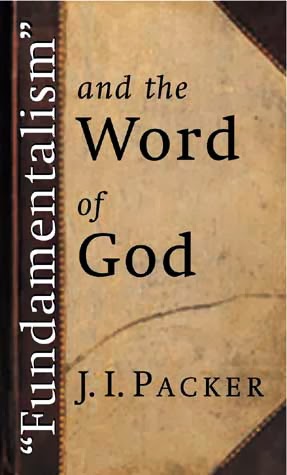 Church and the world. . . . It is easy to be unaware that it has happened; it is hard even to begin to realize how profoundly tradition in this sense has molded us. But we are forbidden to become enslaved to human tradition, either secular or Christian, whether it be “catholic” tradition, or “critical” tradition, or “ecumenical” tradition. We may never assume the complete rightness of our own established ways of thought and practice and excuse ourselves the duty of testing and reforming them by Scriptures.
Church and the world. . . . It is easy to be unaware that it has happened; it is hard even to begin to realize how profoundly tradition in this sense has molded us. But we are forbidden to become enslaved to human tradition, either secular or Christian, whether it be “catholic” tradition, or “critical” tradition, or “ecumenical” tradition. We may never assume the complete rightness of our own established ways of thought and practice and excuse ourselves the duty of testing and reforming them by Scriptures.  Contrary to what God told Daniel, John’s vision was to remain unsealed because the time was at hand. “At hand” simply cannot be stretched thousands of years. I dealt with this issue extensively HERE. Any eschatological system that disregards this principle is doomed to misinterpretation.
Contrary to what God told Daniel, John’s vision was to remain unsealed because the time was at hand. “At hand” simply cannot be stretched thousands of years. I dealt with this issue extensively HERE. Any eschatological system that disregards this principle is doomed to misinterpretation. 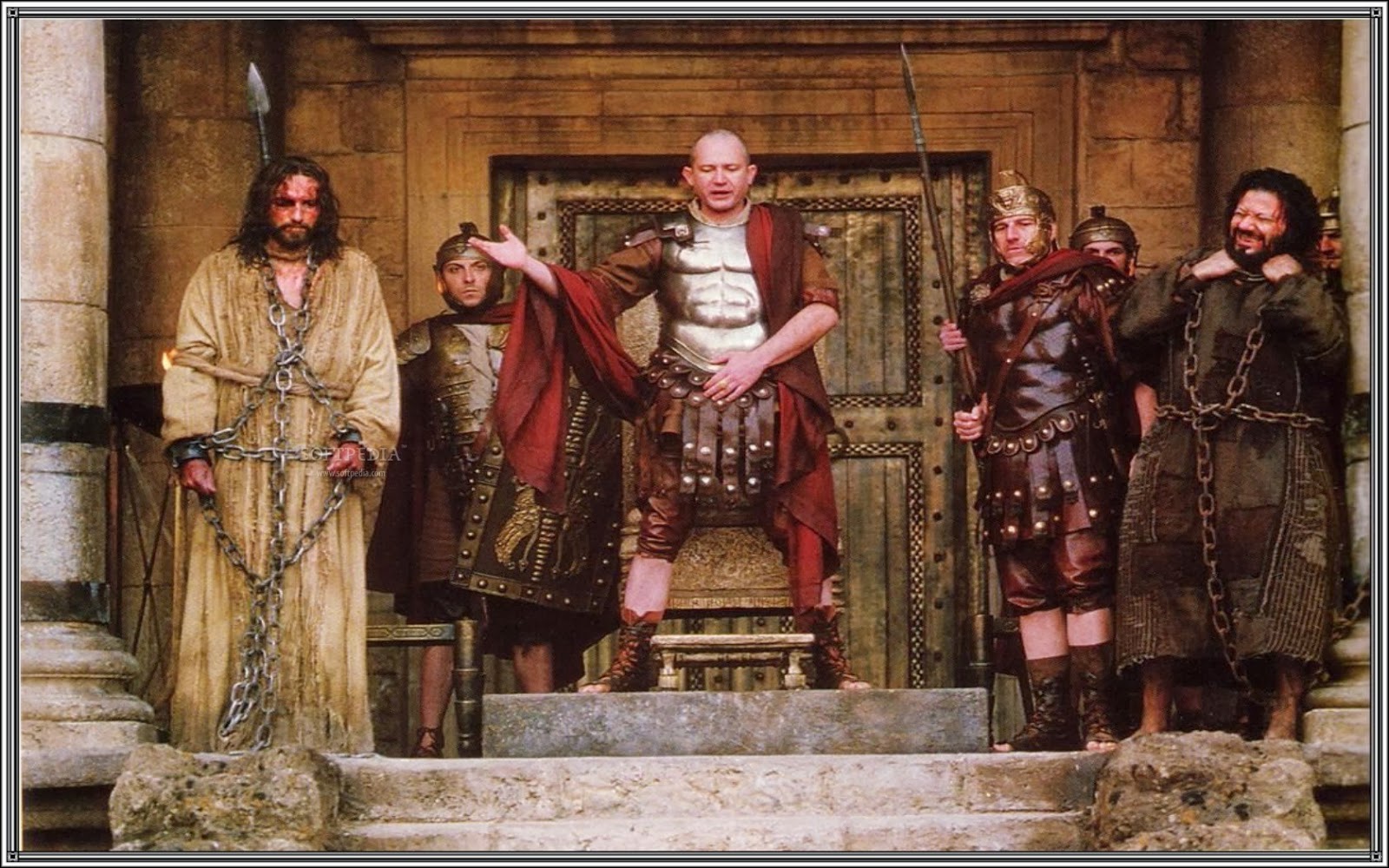






 the dispatcher tells you that the fire trucks are on the way and will be there shortly. Would you sing the fire department’s praises if they never arrived and your house burned to the ground? Would it make your misery any less profound to find out that those trucks were not only never dispatched, but there was never any intent to send them?
the dispatcher tells you that the fire trucks are on the way and will be there shortly. Would you sing the fire department’s praises if they never arrived and your house burned to the ground? Would it make your misery any less profound to find out that those trucks were not only never dispatched, but there was never any intent to send them? 
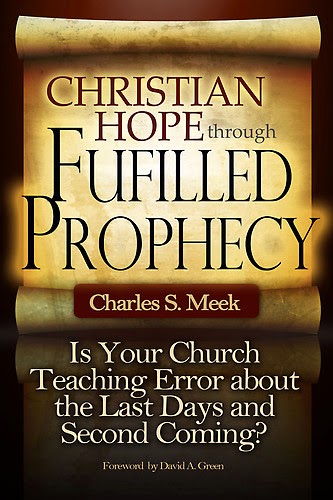
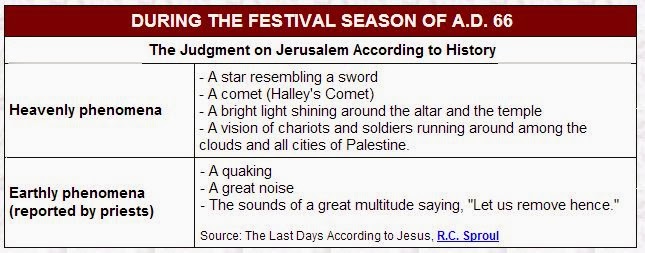

 ignorant of that which has been spoken of by this brother. I may not have been to Guatemala but I have been in and around the world of the charismata for quite a few years. Many years ago in our small Presbyterian church, in the blink of an eye, we went from “frozen chosen” Calvinists to card-carrying ambassadors of the Holy Spirit’s new wave of power. After being convinced by Terry Fullum, an Episcopal rector from Connecticut who wrote “
ignorant of that which has been spoken of by this brother. I may not have been to Guatemala but I have been in and around the world of the charismata for quite a few years. Many years ago in our small Presbyterian church, in the blink of an eye, we went from “frozen chosen” Calvinists to card-carrying ambassadors of the Holy Spirit’s new wave of power. After being convinced by Terry Fullum, an Episcopal rector from Connecticut who wrote “
 Nothing would stop this new move of the Holy Spirit as we could now do all things through Christ! Millions upon millions were going to be healed and converted as this “Last days” movement swept across the globe.
Nothing would stop this new move of the Holy Spirit as we could now do all things through Christ! Millions upon millions were going to be healed and converted as this “Last days” movement swept across the globe. 
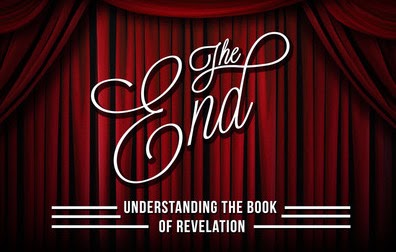














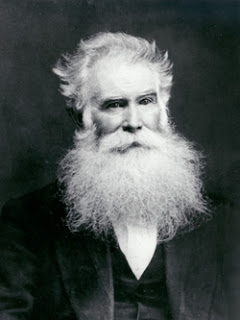


 column B approach is not valid because of the way dispensationalism is constructed. People don’t realize that the rapture was a necessary fabrication to rid the world of the Church so that God could properly (they say) focus on the apple of His eye, Israel. It is a system that simply cannot be tweaked, though many mistakingly think it’s possible. It should be viewed as an elaborate jigsaw puzzle, where if one piece does not fit, the entire puzzle should be scrapped.
column B approach is not valid because of the way dispensationalism is constructed. People don’t realize that the rapture was a necessary fabrication to rid the world of the Church so that God could properly (they say) focus on the apple of His eye, Israel. It is a system that simply cannot be tweaked, though many mistakingly think it’s possible. It should be viewed as an elaborate jigsaw puzzle, where if one piece does not fit, the entire puzzle should be scrapped.


